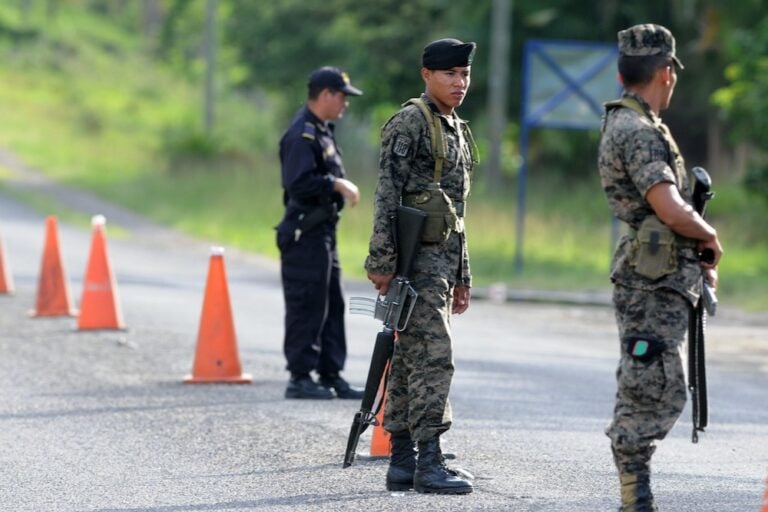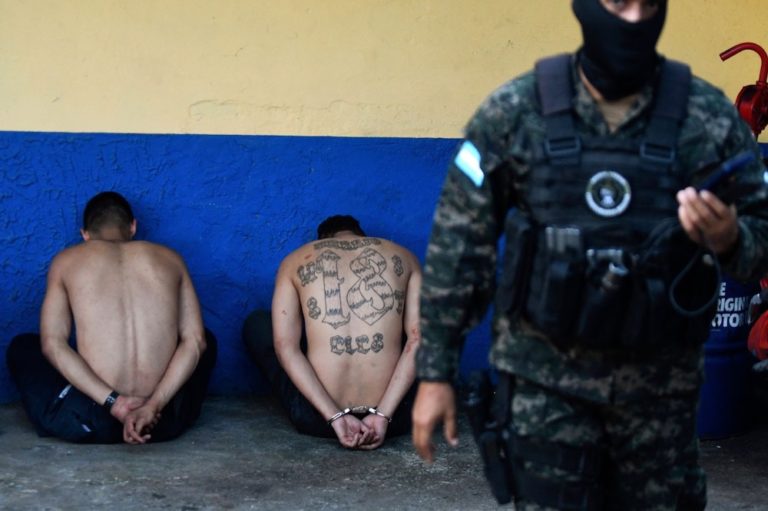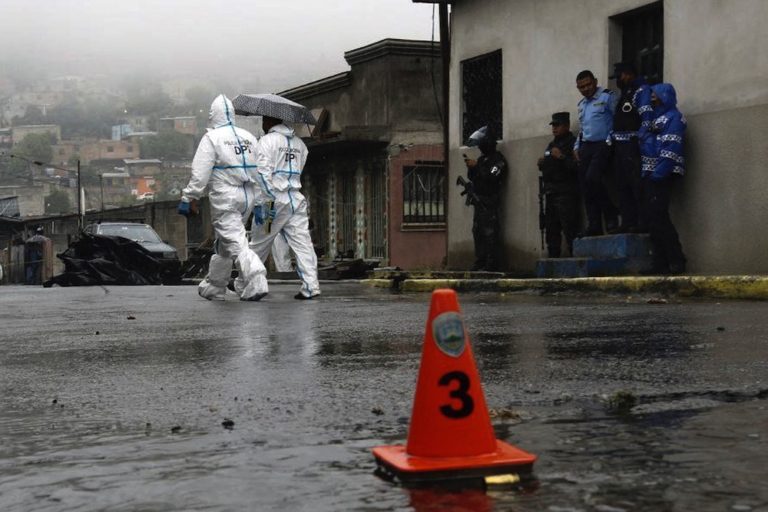In a recent Anniversary Action, the Writers in Prison Committee (WiPC) of International PEN has called on Honduran authorities to pursue investigations into the disappearance of university professor and journalist Tomas Nativi Galvez. At 2:30 in the morning on 11 June 1981, Bertha Oliva was roused from sleep by the sound of gunshots and a […]
In a recent Anniversary Action, the Writers in Prison Committee
(WiPC) of International PEN has called on Honduran authorities to
pursue investigations into the disappearance of university
professor and journalist Tomas Nativi Galvez.
At 2:30 in the morning on 11 June 1981, Bertha Oliva was roused
from sleep by the sound of gunshots and a moan coming from the
room next door. Her friend Fidel Martinez was sleeping in that
room. Moments later six heavily armed and masked men entered the
room Bertha was sharing with her partner Tomas Nativi Galvez. The
men kicked Galvez and dragged him off to a waiting vehicle. They
tied and gagged Bertha, who was three months pregnant, but not
before she saw the body of Fidel Martinez carried from the
building in a curtain. Martinez appeared to have multiple bullet
wounds to the face and neck.
Nativi, a university professor and journalist, had previously been
the target of frequent arbitrary arrests and torture, and had been
in prison on a number of occasions because of his political
activities.
In March 1979, he was detained with 150 trade unionists in
connection with a strike at a textile factory. The factory was set
on fire during the strike and Nativi was arrested and charged with
arson. Honduran security forces were widely suspected of causing
the blaze, which killed four workers and injured others, and
Nativi was released from prison in December 1979. He was
re-arrested the following year when a group calling itself the
“Union Revolucionaria del Pueblo” (URP) occupied the offices of
the Organisation of American States (OAS) and appointed Nativi as
its official negotiator. He was released on 7 September 1980 as
part of an amnesty but re-arrested later the same day. Again he
was released after a short time but was re-arrested on 23 December
by the investigative branch of the security forces (DNI). On this
occasion he was held “incommunicado,” subjected to severe torture
and finally “released,” as he was found left for dead on a
roadside three days later.
In spite of various efforts to investigate Nativi’s disappearance
by bodies ranging from FUSEP (the Public Security Forces who
oversee the DNI), a Special Commission of the Armed Forces and the
Supreme Court, no prosecutions have been initiated or alleged
suspects investigated.
In July 1991, a government decree declared an amnesty from
prosecution for military and police personnel allegedly involved
in “disappearances” or other abuses committed in the past.
However, one month later, the National Reconciliation Commission
(CNR) was reactivated after many years’ dormancy to re-open the
investigation of “disappearances.”
In December 1993, the National Commission for the Protection of
Human Rights published a report on “disappearances” which named
Nativi. The report, entitled “The Facts Speak for Themselves”, was
the first acknowledgement of government responsibility in human
rights violations in the 1980s. The report called for the
disappearances to be brought to justice and the families of the
disappeared to be compensated. Since then, there have been
exhumations of some bodies and attempts to bring court cases
against those thought to be responsible, but the process has faced
several obstacles, including the army’s denial of responsibility
for abuses. There has also been intimidation and threats against
human rights groups campaigning for the families of the
disappeared such as COFADEH, which is run by Nativi’s partner.
President Reina has pledged to end impunity for human rights
abuses and said he would follow up the recommendations of the
National Commissioner’s report.
In 1995, arrest warrants were issued against three military
officers accused of being involved in violations against six
students in 1982. Other officers face charges in connection with
this case. The officers had argued that the amnesty laws of 1987,
1990 and 1991 prevented judicial proceedings being taken against
them but this was overruled by the Supreme Court.
Recommended Action
Send appeals to authorities:
clarify past human rights abuses and to bring those responsible to
justice
into the case of Tomas Nativi Galvez, to bring those responsible
to justice and to ensure the safety of all those involved in
continuing to clarify this case
Appeals To
Edmundo Orellano Mercado
Attorney General
Tegucigalpa, Honduras
Fax:+ 504 394 752
His Excellency Carlos Roberto Reina
President of the Republic of Honduras
Tegucigalpa, Honduras
Fax:+ 504 343 595/341 460
Please copy appeals to the originator and to:
Bertha Oliva
COFADEH
Fax:+504 379800


